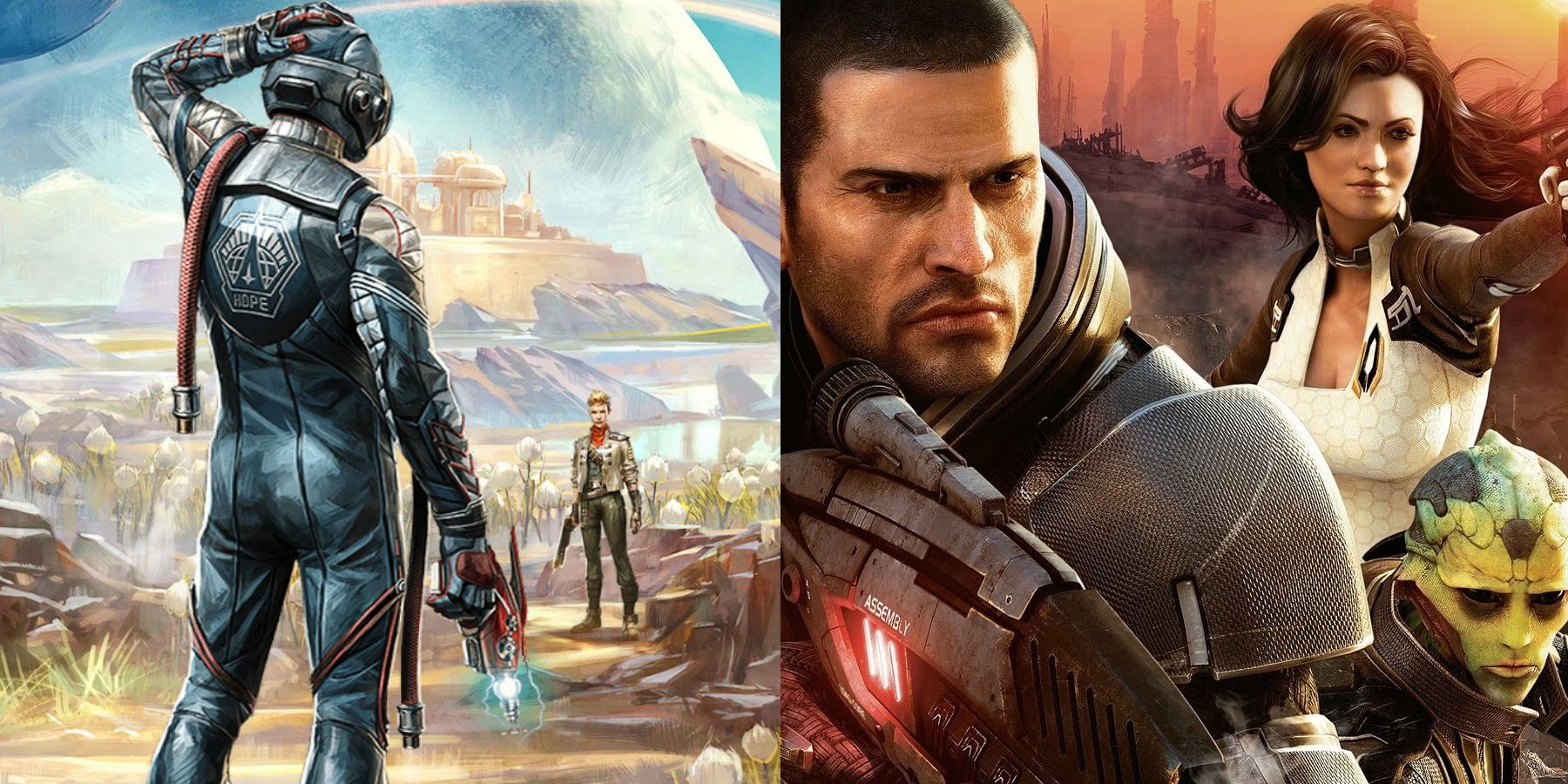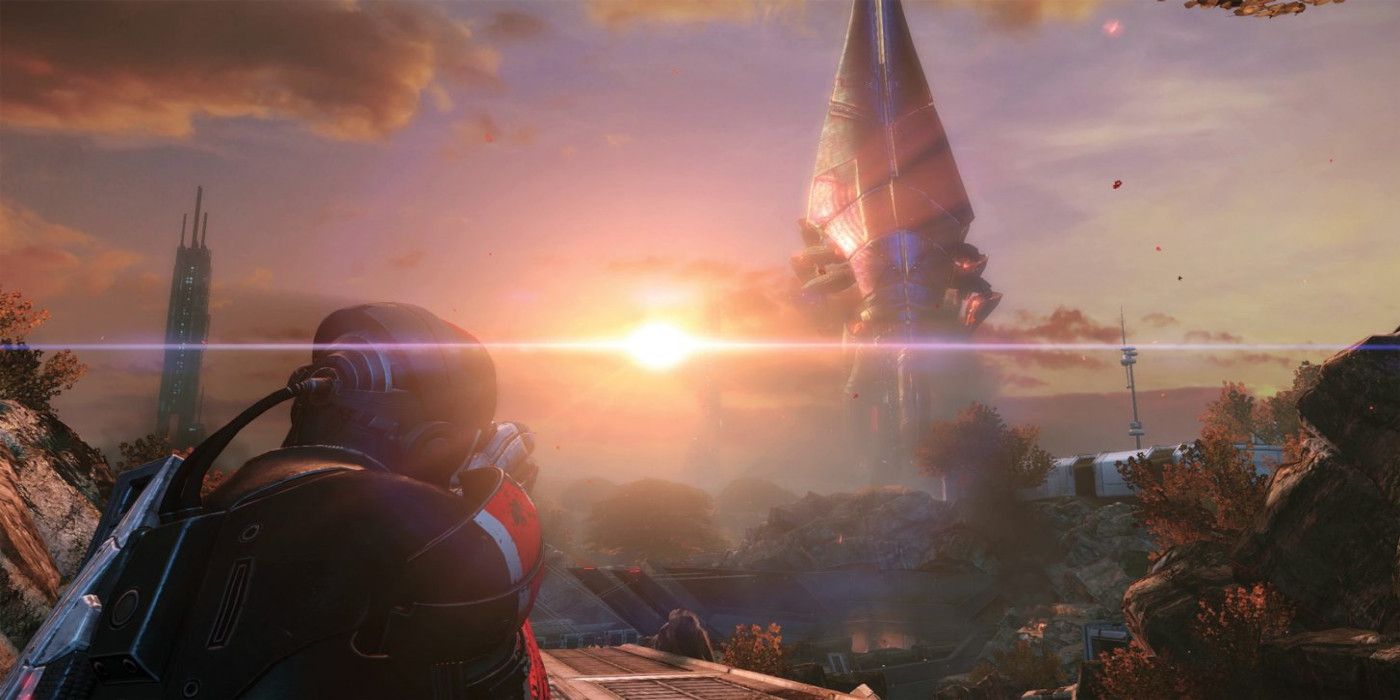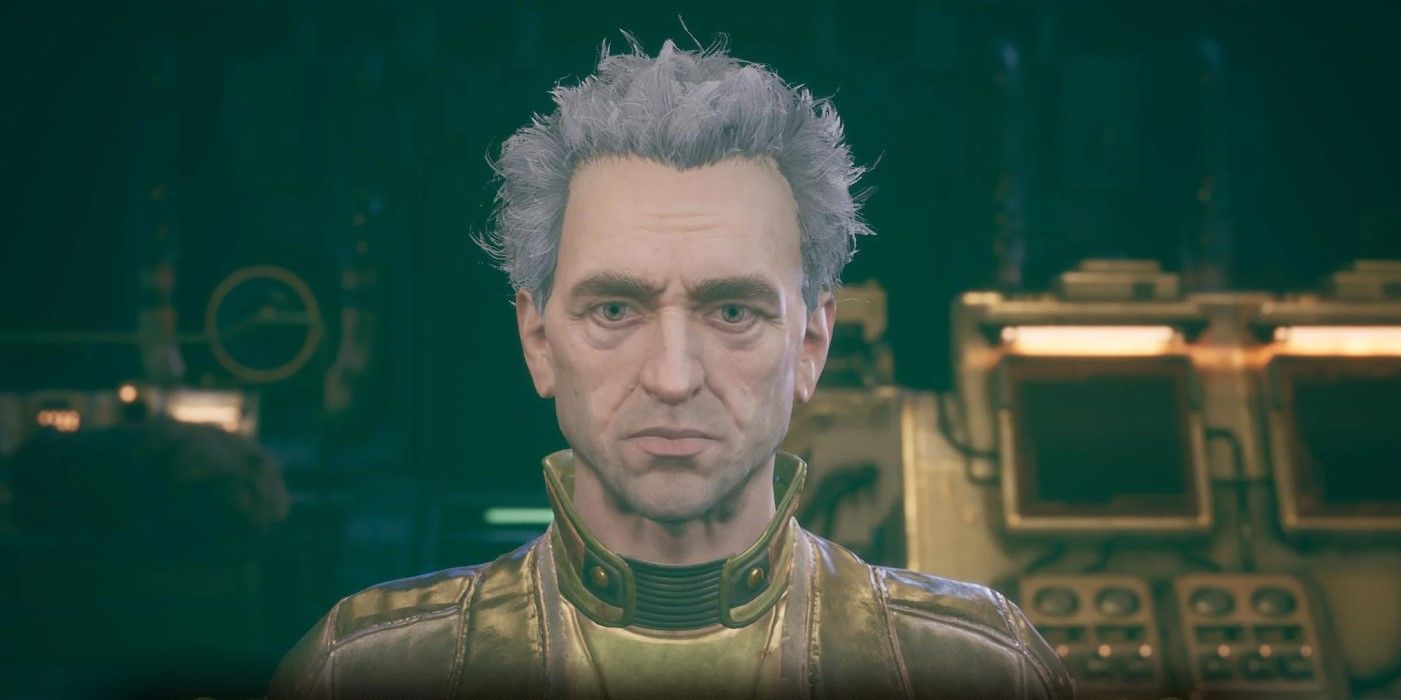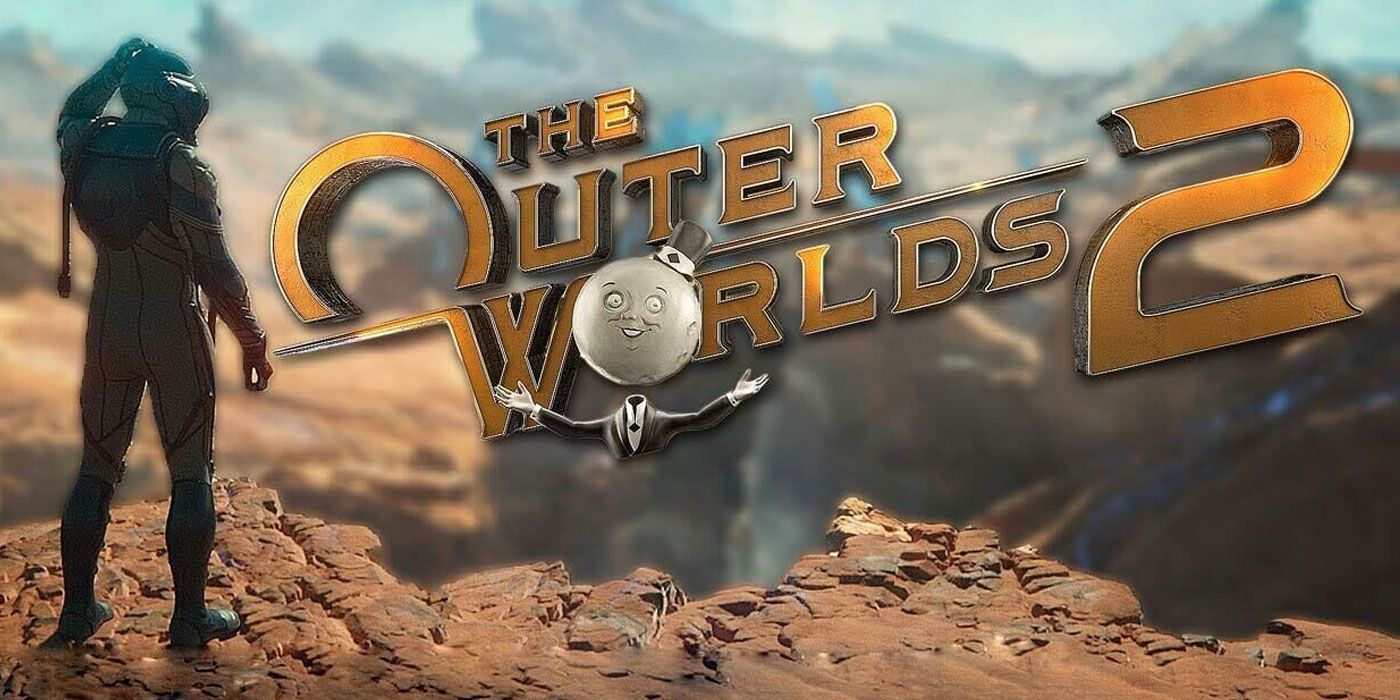The Outer Worlds 2 is on the way, and though its tongue-in-cheek trailer made it clear that the title is still in the early stages of development, many Obsidian fans were still excited to see that the studio’s sci-fi IP would be getting a sequel. That doesn’t mean there isn’t room for improvement over the original, however.
The first Outer Worlds has a few problems when it comes to player choices. It’s far from the first RPG to have these issues—they’re ones many Mass Effect fans experienced once again with the release of Mass Effect: Legendary Edition. Here’s why The Outer Worlds 2 needs to avoid one of Mass Effect’s biggest pitfalls, and how it might do that.
Mass Effect Morality
The player has plenty of moral choices they can make across the original Mass Effect trilogy. Almost all of these choices are divided among the first three games’ morality system, between Renegade and Paragon points.
When introduced in Mass Effect 1, the idea is generally that Renegade options are ruthlessly pragmatic, while Paragon options prioritize idealism with potentially negative consequences down the line. In theory, there’s no way to know that picking a Paragon option will lead to a better outcome, it’s just a matter of whether the player wants to prioritize principles or pragmatism at the moment they’re making the decision. As the trilogy goes on, however, this does not remain the case.
There are many times throughout the original Mass Effect trilogy where players can rely on the fact that picking Paragon options won't just allow the player to do the right thing at that moment, but will also lead to a better outcome in the long term. Instead of engaging with any of the moral dilemmas put before them in the story, Mass Effect players can reliably meta-game, simply dedicating themselves to picking either exclusively Paragon or Renegade options depending on the sort of story they want to see. The games even require this focus on a single path to unlock later dialogue options, an element reigned back with the release of the remasters.
Mass Effect’s morality system has a lot of problems a game like The Outer Worlds avoids. Most noticeably, there is no actual morality meter in The Outer Worlds that acts as an equivalent to the Renegade and Paragon system or the light side and dark side system found in BioWare’s Knights of the Old Republic. One of the main problems, however, still remains.
Decisions In The Outer Worlds
Rather than making each moral choice something players have to consider the consequences of in-character, it’s clear from The Outer Worlds’ opening scene where the moral chips of its universe fall. Phineas Welles introduces himself as a heroic and benevolent if eccentric freedom fighter, while the Board is introduced as an evil organization run exclusively by greed before the player even gets to pick their first dialogue option. The rest of the game never really subverts these assumptions.
The main choice the player makes in The Outer Worlds is simply whether they want to be an evil character who wreaks chaos on the colony or the good guy. Like Mass Effect’s morality system, the consequences of the player’s choices seem too readily apparent at the moment they’re making the choice.
There are plenty of decisions to be made in The Outer Worlds, but very few that can be considered particularly difficult or engaging when the player is already generally able to tell that siding with the Board will lead to negative consequences for the colony, while siding against them will lead to positive outcomes.
Improving Player Choice In The Outer Worlds 2
There are some moral greys in The Outer Worlds, such as the conflict between the mayor of Edgewater and the separatists who have set up camp outside the company’s control. Overall, however, the moral universe of The Outer Worlds is too predictable, and just like Mass Effect, players can reliably pick certain choices under the assumption that being good will beget good actions, even though that isn’t necessarily the case in real life and isn't apparent outside the meta of the story at hand.
Mass Effect dropped its Renegade and Paragon system with Mass Effect: Andromeda, and though that game did little to pose the player with truly tricky moral dilemmas it was a step in the right direction that could pay off in Mass Effect 4. The Outer Worlds doesn’t have a clear-cut morality system that it can drop, but The Outer Worlds 2 should present players with more challenging moral choices.
That doesn’t mean that Obsidian’s series can’t keep as keen a focus on its anti-corporate criticism as the first game—the Board shouldn’t suddenly be the good guys, or merely misunderstood. Instead, the consequences of the player's actions should be less predictable at the point of making them, forcing them to consider a wider array of potential outcomes when making their choices.
It’s conceivable, for example, that overthrowing the Board in the Halcyon system could lead to violent reprisals rather than the prosperity Phineas Welles hopes for, but there is no ending in which that can happen. Similarly, it’s possible that the Board could be completely malicious, but that Phineas’ plan to revive the colony using the Hope survivors is still flawed. None of these possibilities are ever explored in much depth, and the game’s moral universe never gets much more complicated than it is when it’s explained in the intro.
Fortunately, The Outer Worlds has a great deal of freedom when it comes to its sequel’s story. The Outer Worlds 2 will not be set in the same solar system as the last game, and Obsidian has total freedom to define new factions and less predictable dynamics than the last game had. Whether or not it will take advantage of that opportunity is another story, but hopefully, the next game has a complicated enough universe that the choices presented to the player can’t as easily be summed up as good or evil, or their consequences so easily predicted.
The Outer Worlds 2 is in development for PC and Xbox Series X/S.




